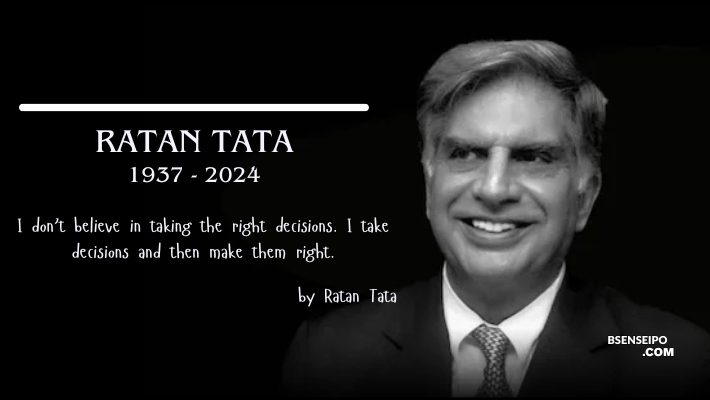Ratan Tata Death Anniversary: Remembering the Visionary Who Redefined Indian Industry
Ratan Tata Death Anniversary: Today marks the death anniversary of Ratan Naval Tata, the legendary industrialist, philanthropist, and former chairman of the Tata Group. Known for his humility, ethics, and visionary leadership, Ratan Tata remains one of India’s most respected figures in business and beyond. His enduring legacy continues to shape generations of entrepreneurs, leaders, and changemakers around the world.
Early Life and Education
Born on December 28, 1937, in Mumbai, Ratan Tata belonged to one of India’s most prominent business families. A graduate of Cornell University in architecture and structural engineering, he later completed the Advanced Management Program at Harvard Business School.
Despite his privileged background, Tata’s journey was marked by discipline, compassion, and a deep sense of responsibility toward society — values instilled by his grandmother, Lady Navajbai Tata.
Leadership at the Tata Group
Ratan Tata took over as Chairman of the Tata Group in 1991, succeeding J.R.D. Tata. Under his leadership, the group transformed into a global powerhouse with operations spanning over 100 countries.
His tenure saw landmark acquisitions such as:
- Tetley Tea (UK) in 2000
- Corus Steel (UK) in 2007
- Jaguar Land Rover (UK) in 2008
These bold moves turned Tata Group into a global brand synonymous with quality, trust, and innovation.
Humanitarian Vision and Philanthropy
Beyond business, Ratan Tata’s true impact lay in his philanthropic spirit. Over 65% of Tata Sons’ equity is held by charitable trusts that fund initiatives in education, healthcare, rural development, and science.
He personally championed causes like affordable innovation, including the world’s cheapest car — the Tata Nano — aimed at giving middle-class Indians the dream of owning a car.
His famous quote still resonates:
“I don’t believe in taking the right decisions. I take decisions and then make them right.”
Legacy and Tributes
Even after retirement in 2012, Ratan Tata continued to inspire millions through mentorship, startup investments, and social initiatives. His name became synonymous with integrity and national pride.
On his death anniversary, tributes pour in from global leaders, business icons, and citizens alike — remembering a man who placed purpose over profit and values over valuation.
From Mumbai to New York, his story continues to inspire the world to dream big and lead with kindness.
Conclusion
Ratan Tata’s legacy transcends industries — he is remembered not just as an industrialist, but as a humanitarian whose life redefined the meaning of success.
On his death anniversary, India salutes the man who believed in building a nation where business serves people, not just profits.
His life reminds us that true greatness lies in service, simplicity, and sincerity.
Rest in peace, Ratan Naval Tata — the man who built India’s dreams.




